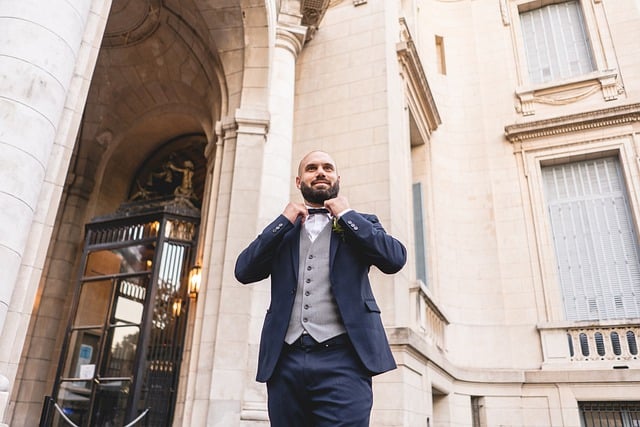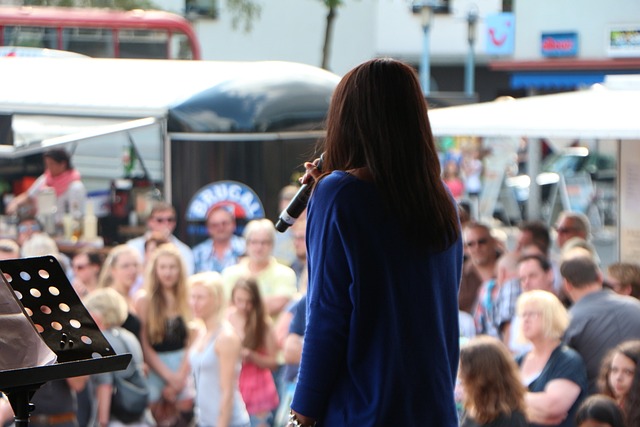TL;DR:
Selecting the right social media platform is crucial for successful Event Planning for Local Businesses. Aligning events with audience preferences and nature (e.g., visual on Instagram, professional on LinkedIn) boosts engagement. Understanding target demographics and favored platforms ensures effective reach and meaningful connections, leveraging tools like live streams, hashtags, and interactive content to amplify event impact and cultivate online communities.
In today’s digital age, social media events offer local businesses a powerful platform to engage their audiences. This comprehensive guide explores the art of skillfully managing these virtual gatherings, ensuring maximum impact. From selecting the perfect platform (e.g., Instagram or LinkedIn) aligned with event goals and brand consistency, to crafting compelling strategies, interactive elements, and effective logistics management, each step is crucial. Discover how to leverage social media tools for promotion and community engagement, fostering user-generated content, and creating a lasting impact for your local business.
- Choosing the Right Platform for Your Event
- – Understanding different social media platforms and their features
- – Matching event goals with suitable platforms (e.g., Instagram vs. LinkedIn)
Choosing the Right Platform for Your Event

When planning events for local businesses, selecting the perfect social media platform is a strategic move that can significantly impact engagement and reach. The choice should align with your target audience’s preferences and the nature of the event. For instance, Instagram is ideal for visually captivating events like product launches or pop-up markets, leveraging its rich visual content format. In contrast, LinkedIn is better suited for professional networking events, as it caters to a business-oriented audience. Facebook groups can facilitate community-focused gatherings, fostering interaction among local business owners.
Understanding your audience’s demographics and their favorite social media channels is crucial. This ensures your event reaches the right people and encourages participation. Tailoring your platform selection to these factors not only enhances visibility but also fosters a more meaningful connection with attendees, making your event planning for local businesses a resounding success.
– Understanding different social media platforms and their features

In the realm of event planning for local businesses, a deep understanding of social media platforms and their unique features is paramount. Each platform—be it Facebook, Instagram, Twitter, or LinkedIn—has its own personality, target audience, and set of tools tailored to engagement and content sharing. For instance, visual-centric Instagram lends itself well to showcasing event highlights through captivating photos and videos, while text-driven platforms like Twitter facilitate quick updates and real-time conversations with attendees.
Event planners must also grasp the algorithms that govern each platform’s news feed, optimizing post timing and content strategies accordingly. This involves knowing when to utilize live streams for interactive experiences, employing hashtags effectively to reach a broader audience, and creating engaging content formats such as polls or quizzes to boost participation. Such strategic planning ensures that events gain maximum exposure, fostering a vibrant online community around the brand and enhancing its local business profile.
– Matching event goals with suitable platforms (e.g., Instagram vs. LinkedIn)

When planning events for local businesses, understanding the unique goals of each event is paramount. Different platforms serve distinct purposes, so aligning event objectives with suitable social media channels is crucial for successful engagement. Instagram, for instance, thrives on visual storytelling and community interaction, making it ideal for showcasing local products or hosting photo contests that encourage user-generated content. On the other hand, LinkedIn is better suited for professional networking events, industry updates, and thought leadership content aimed at a more business-oriented audience. Event planners should consider the target demographic and desired outcomes to make informed decisions about which platform will maximize reach and participation.
Matching event goals with appropriate platforms allows organizers to leverage each channel’s unique features effectively. For instance, Instagram Stories can be used for behind-the-scenes content or real-time updates during an event, while LinkedIn Live may be better for longer-form discussions or workshops. This strategic approach ensures that events are not only promoted but also experienced in a way that resonates with the intended audience, enhancing overall engagement and impact for local businesses looking to connect with their customers or industry peers.
Effective social media event management is a game-changer for local businesses looking to enhance their marketing strategies. By carefully selecting the right platform, such as Instagram or LinkedIn, based on specific event goals and target audiences, businesses can create engaging experiences that resonate with their followers. Event planning professionals should leverage these platforms’ unique features to foster meaningful interactions, ultimately driving brand awareness and community growth for local enterprises in today’s digital landscape.






